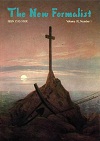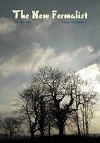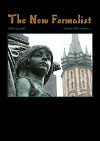Rose Kelleher is one of the most talented of the middle-aged female poets to emerge in the formalist world in the past few years. She can often be found at the various metrical fora workshopping her poems, gossiping, and sharing her strong feminist-liberal opinions, which she no doubt acquired not by careful thought and reason, but by osmosis. Like the rest of us mortals, she has been submitting poems to magazines without the help of poet pals, i.e. without networking. In 2007 Richard Wilbur selected her manuscript for the Anthony Hecht Poetry Prize. Hence, we have “Bundle o’Tinder.”
Though she bears an Irish surname through marriage, she is an Italian American. My mentioning this is important inasmuch as she is a mercurial poet. At her best, she is reasonably tender-hearted and respectful, as in “Old School,” a poem dealing with her mentor-pupil relationship with an elder “old school formalist.”
At her worst she can be mawkishly sentimental. In her sonnet “Neanderthal Bone Flute,” she expresses sympathy for an outsider, a red-haired flute-playing Neanderthal, who might have been rejected by a jut-chinned girl and eventually weeded out of the humanoid gene pool, or perhaps not, perhaps his genes still survive and are expressed in shy boys. Here I quote the closing sestet:
“Ignore the new genetic tests that say
the girl rejected him, that winter came
and spear could not compete with bow and arrow;
that want, or slaughter, whittled him away
because his ways and ours were not the same.
Let bone be flute, the music in our marrow.”
In truth, there is a reason the red-haired Neanderthal might have been rejected. He had a freckled mutant horse-pig face, was stupid and smelly. His flute playing couldn’t attract a healthy female of any subspecies. His genetic demise was best for all. The result is healthy attractive, intelligent people capable of reaching the stars.
Parenthetically, I might add that I often write of outsiders in my own poems: Heraclitus, John Clare, Georg Trakl, Nikola Tesla, Rudolf Hess, Ezra Pound, etc. They are, however, usually Nietzschean supermen, geniuses struggling against insanity, striving for greatness while at odds with their peers and society. Without such people, we would still be tossing spears and eating entrails from our cupped and bloody hands.
I caution Mrs Kelleher against sentimentality in poetry and in life.



